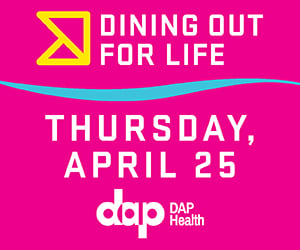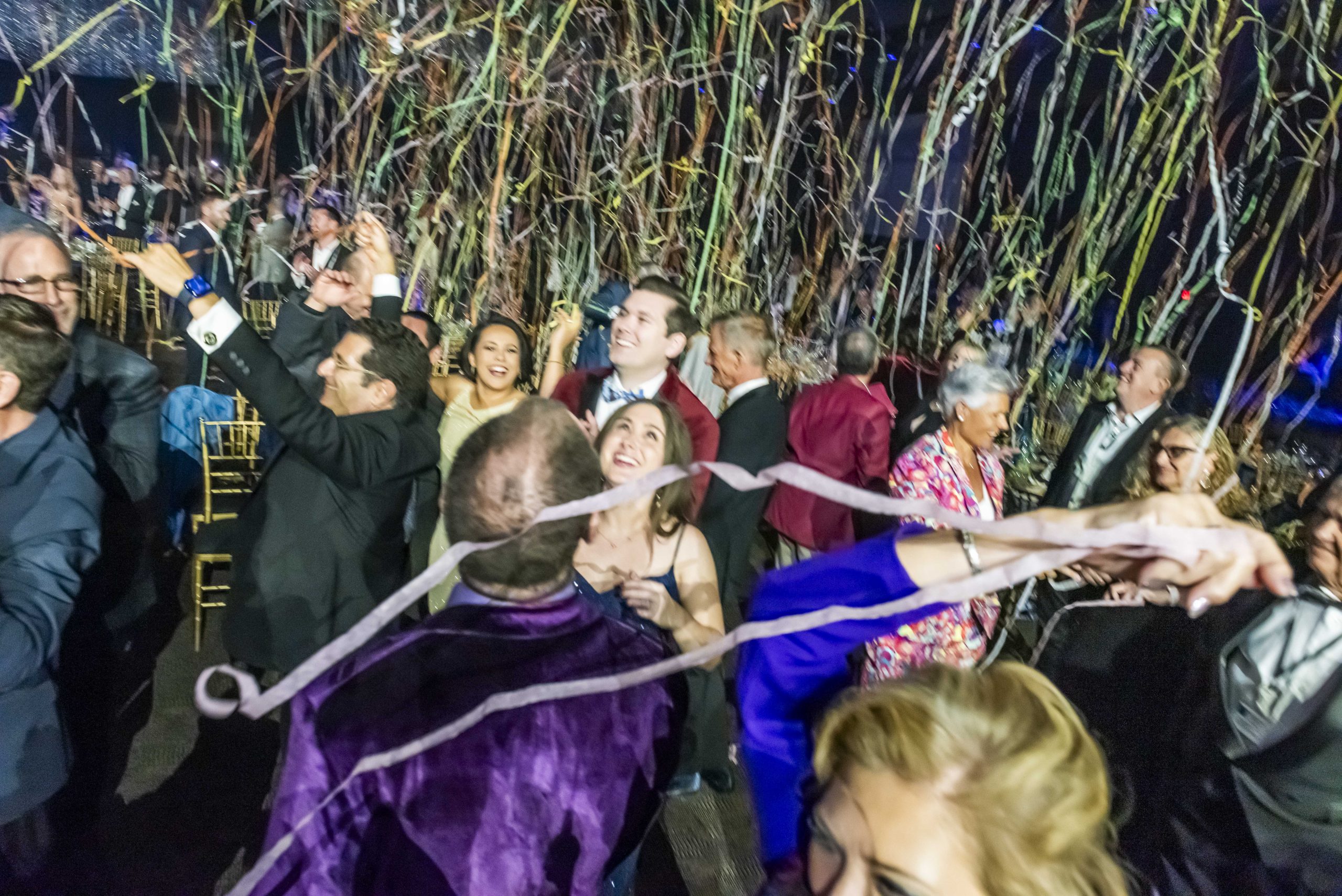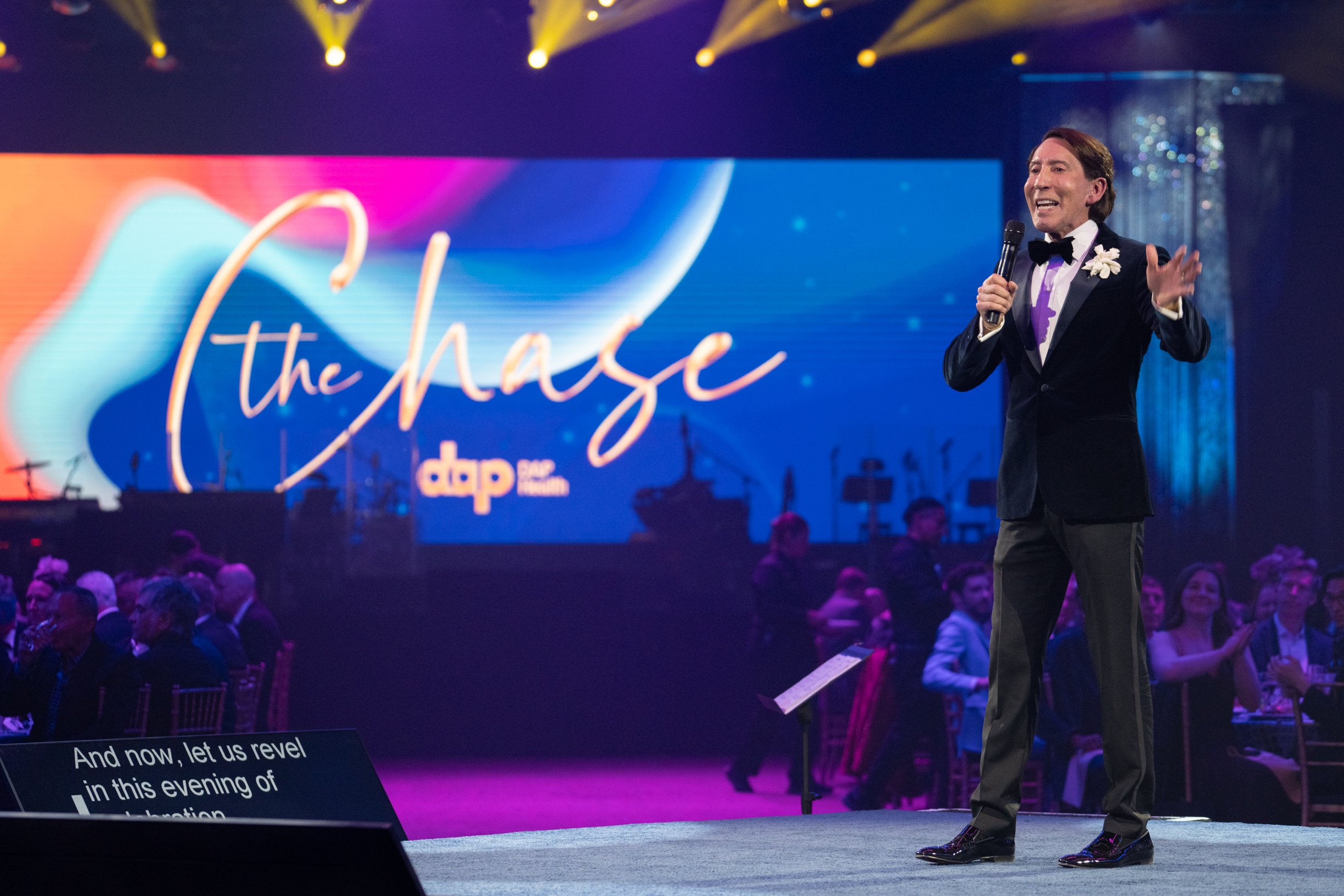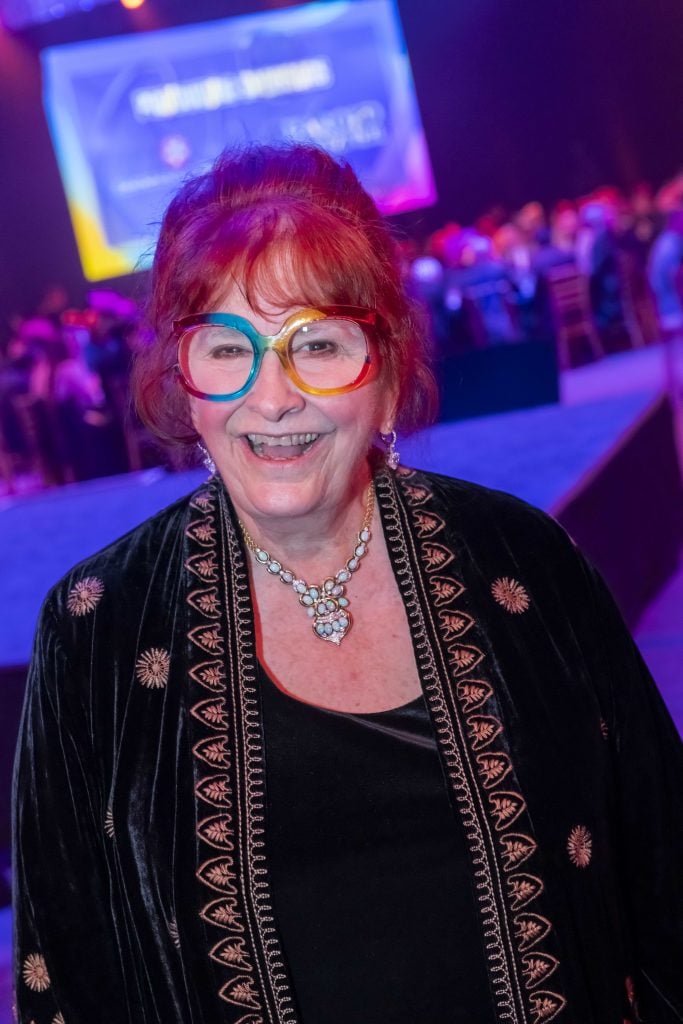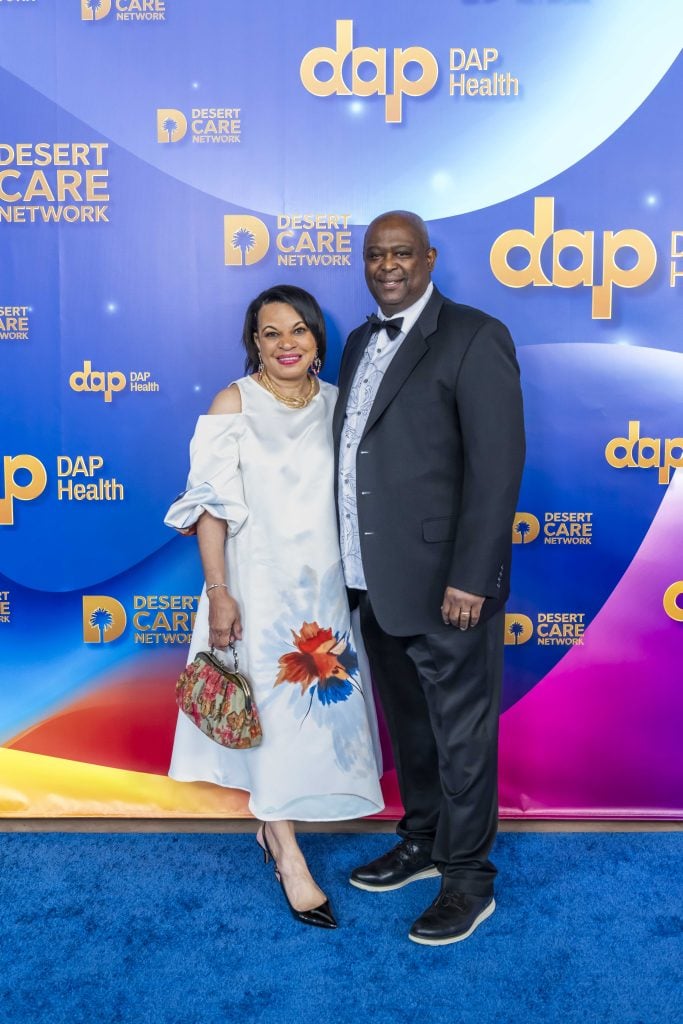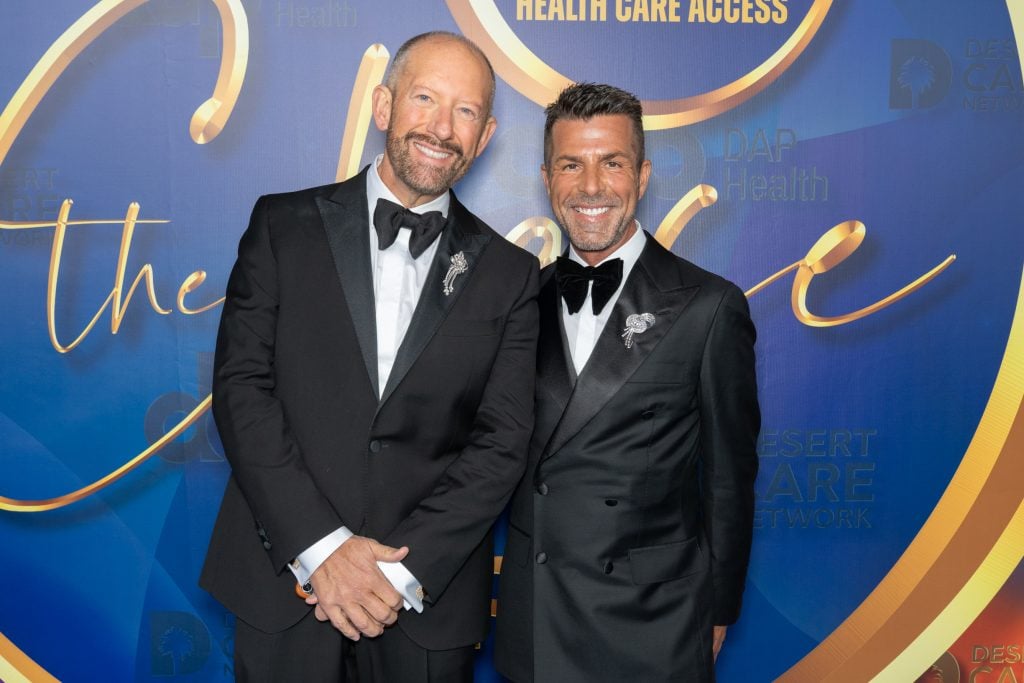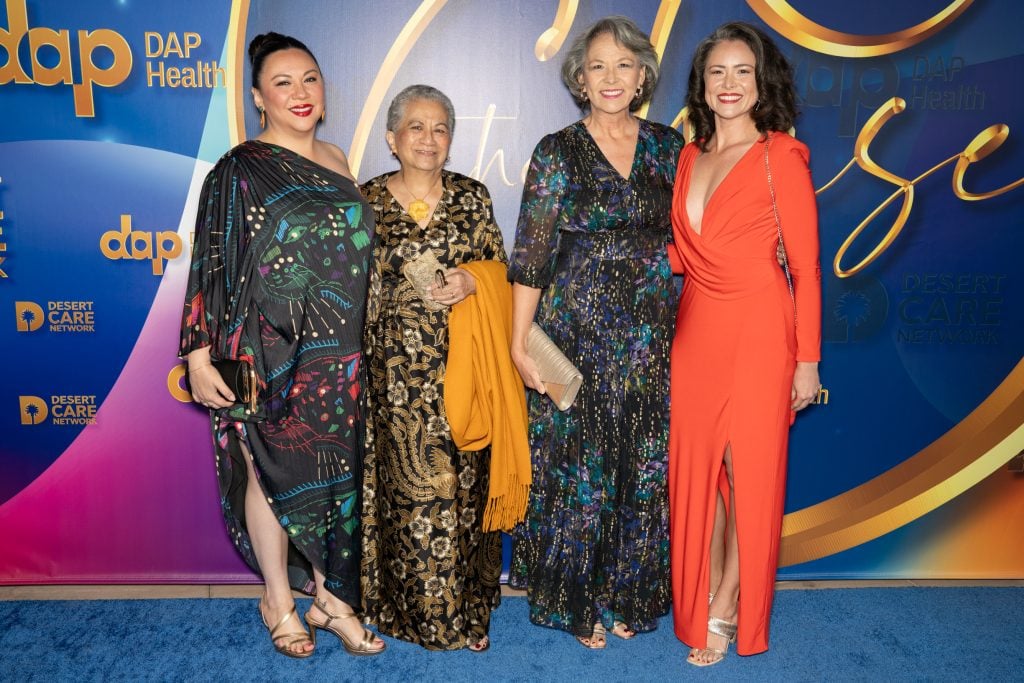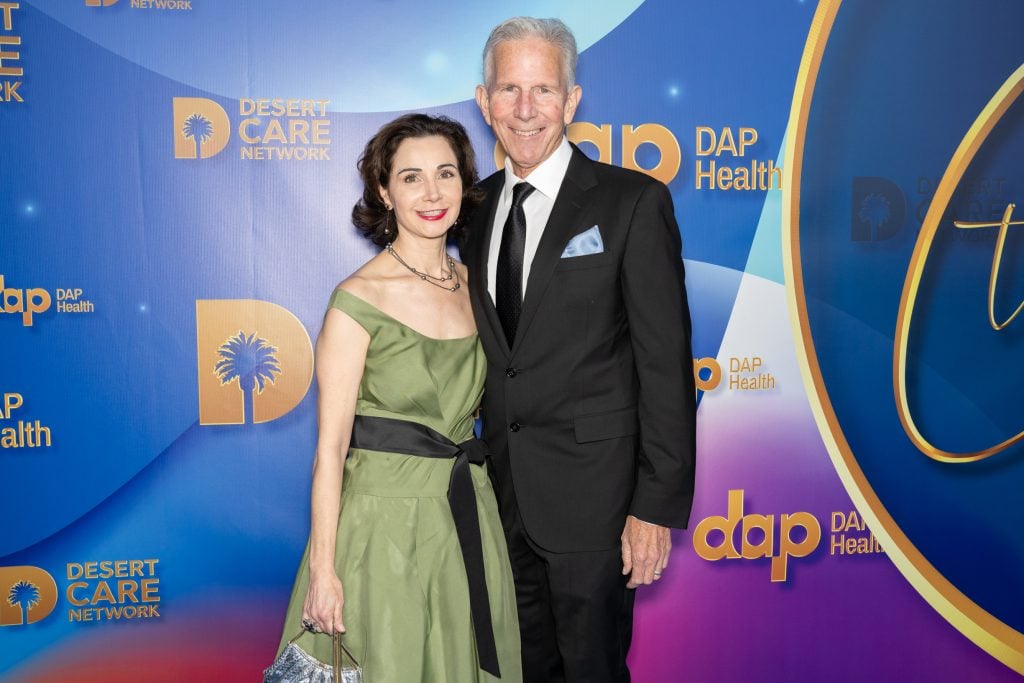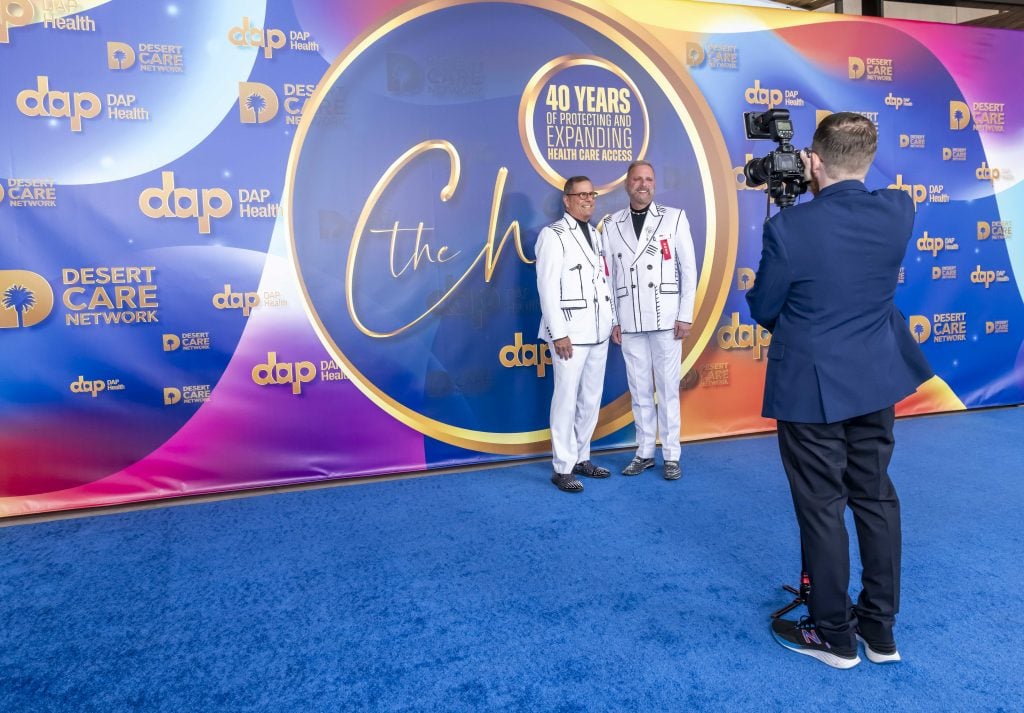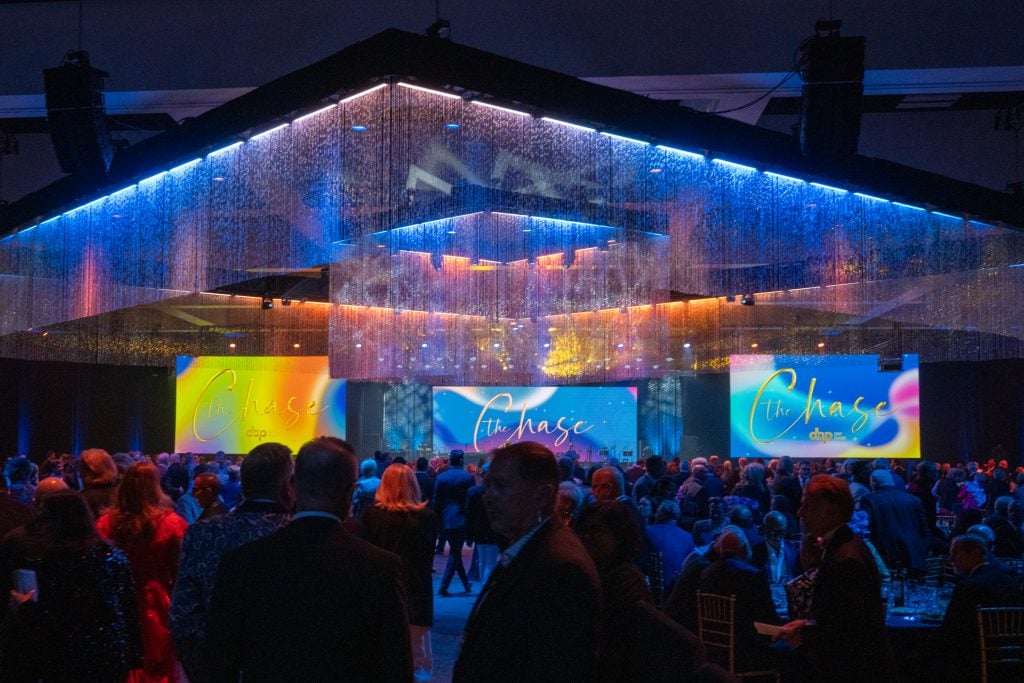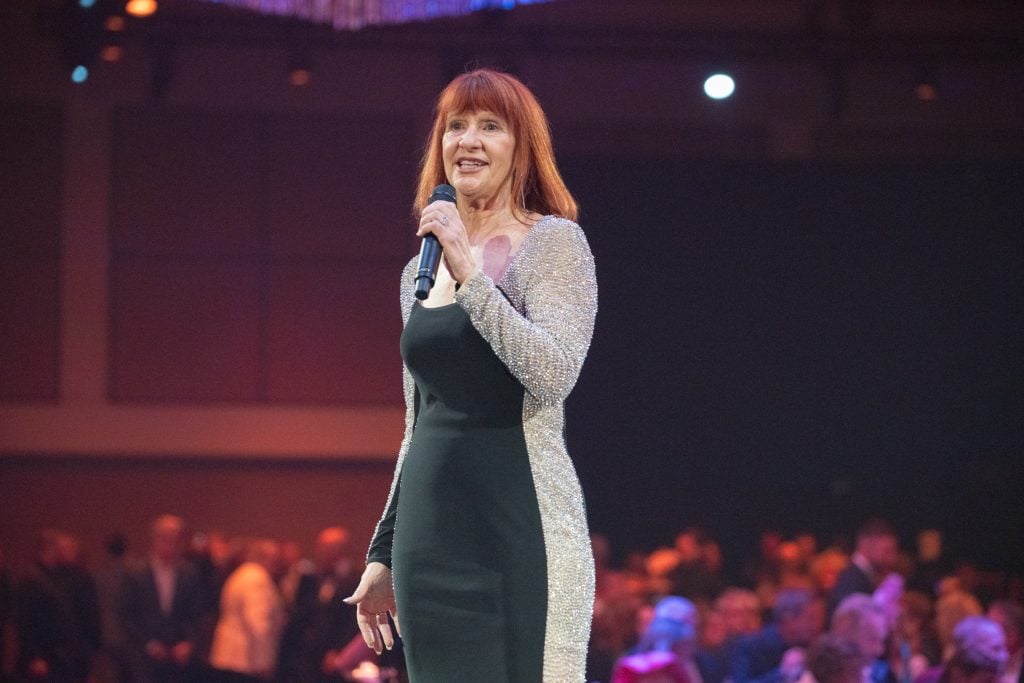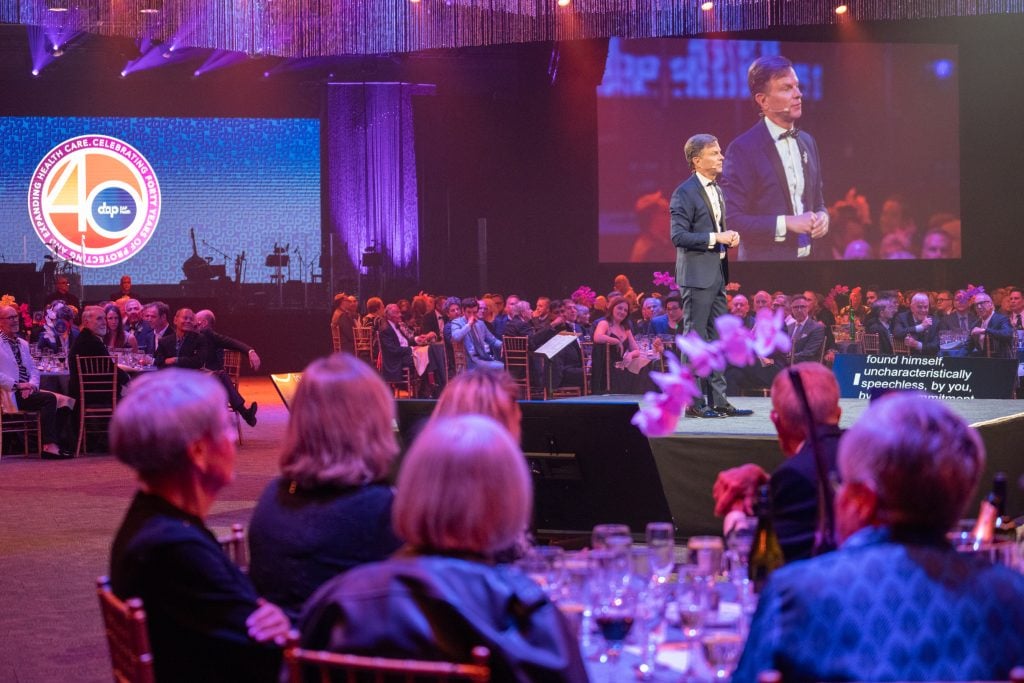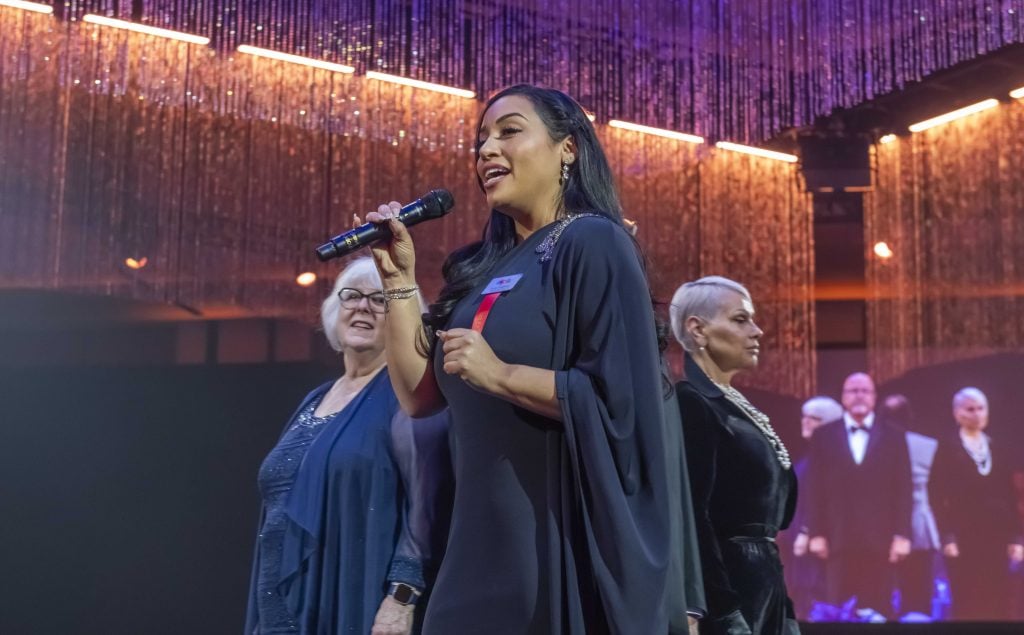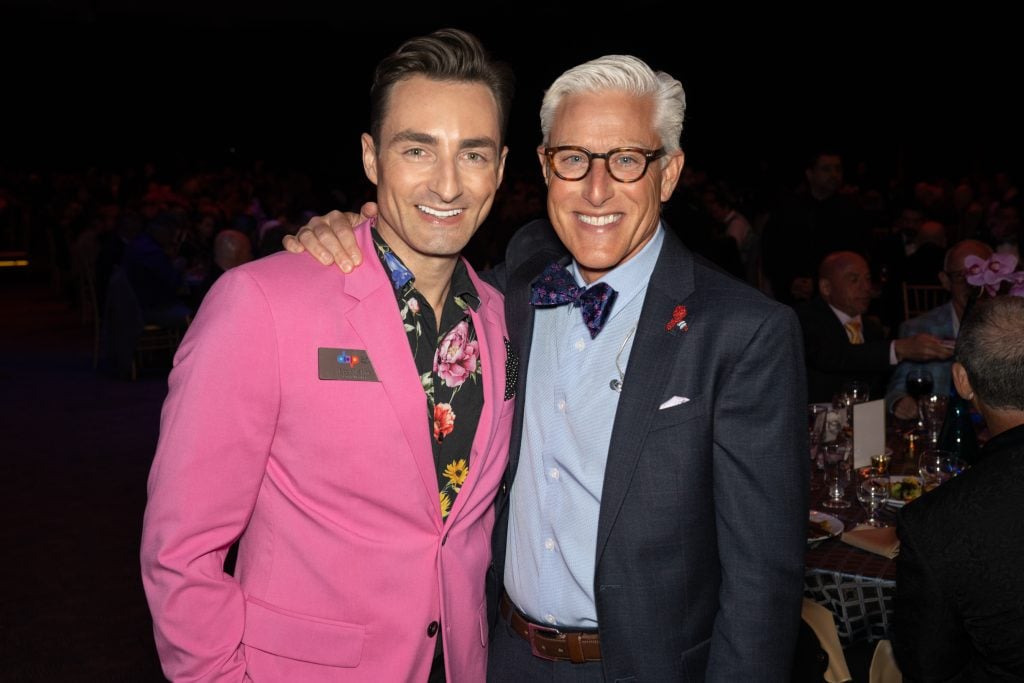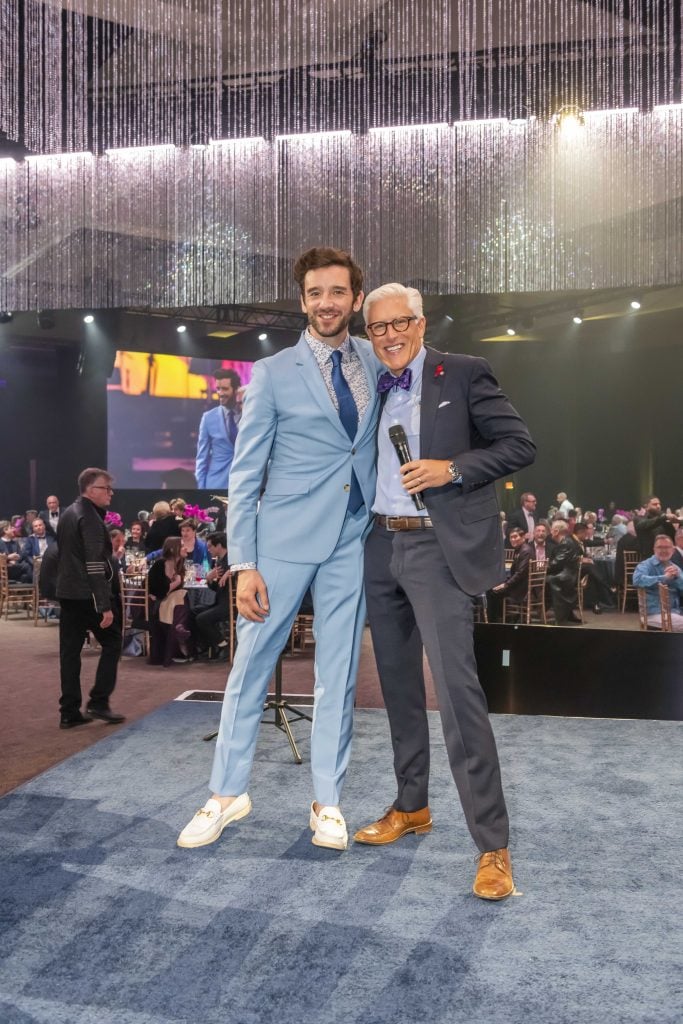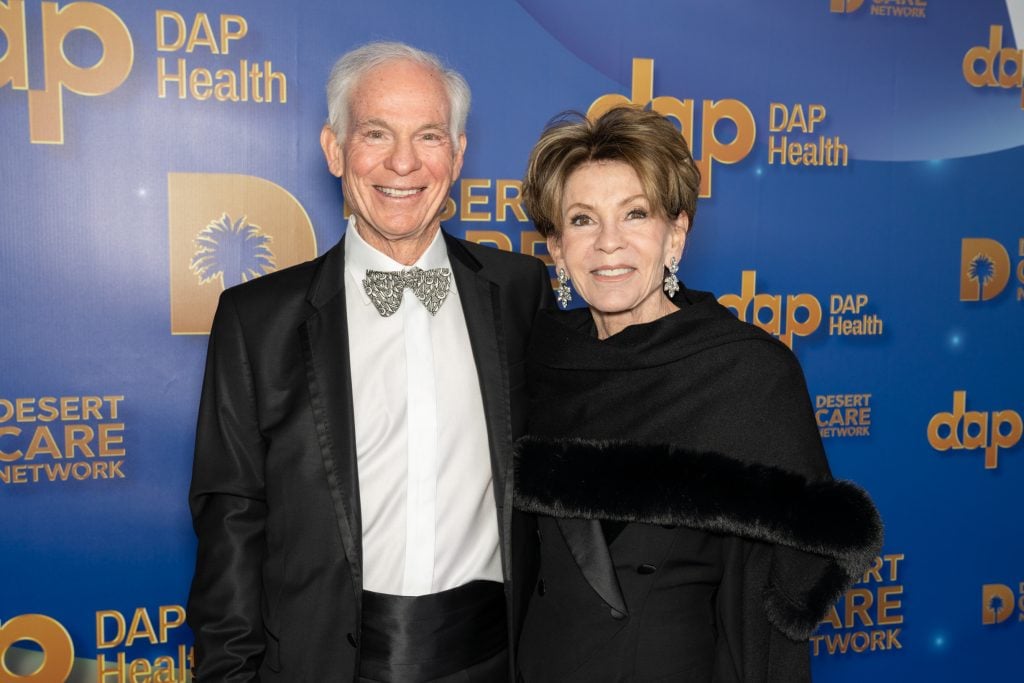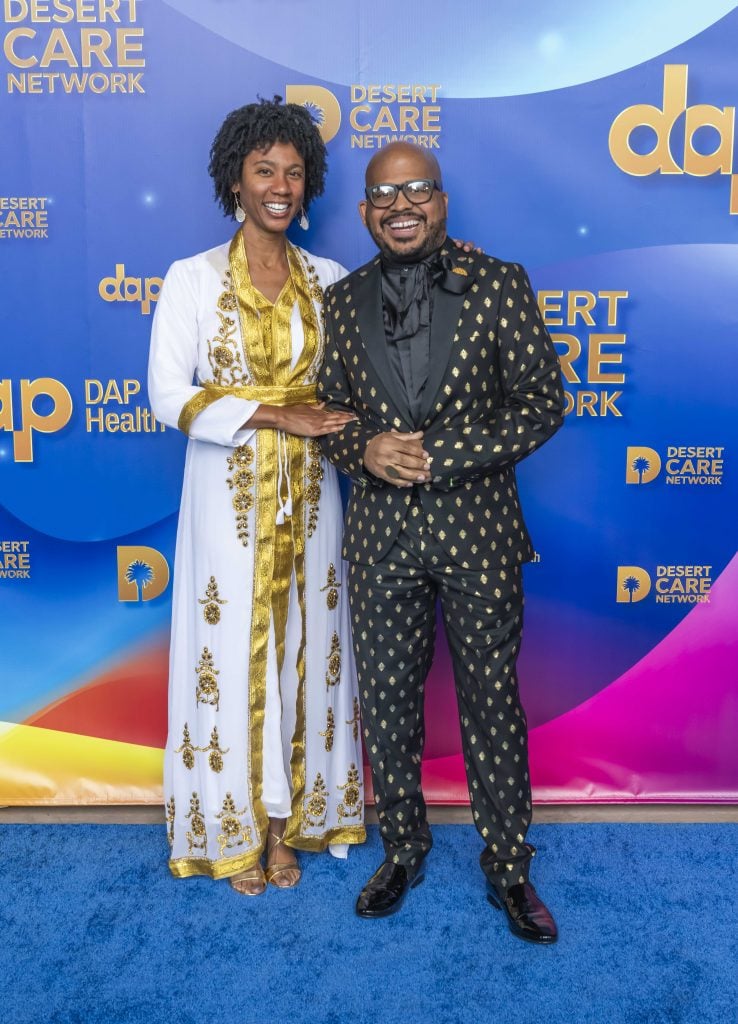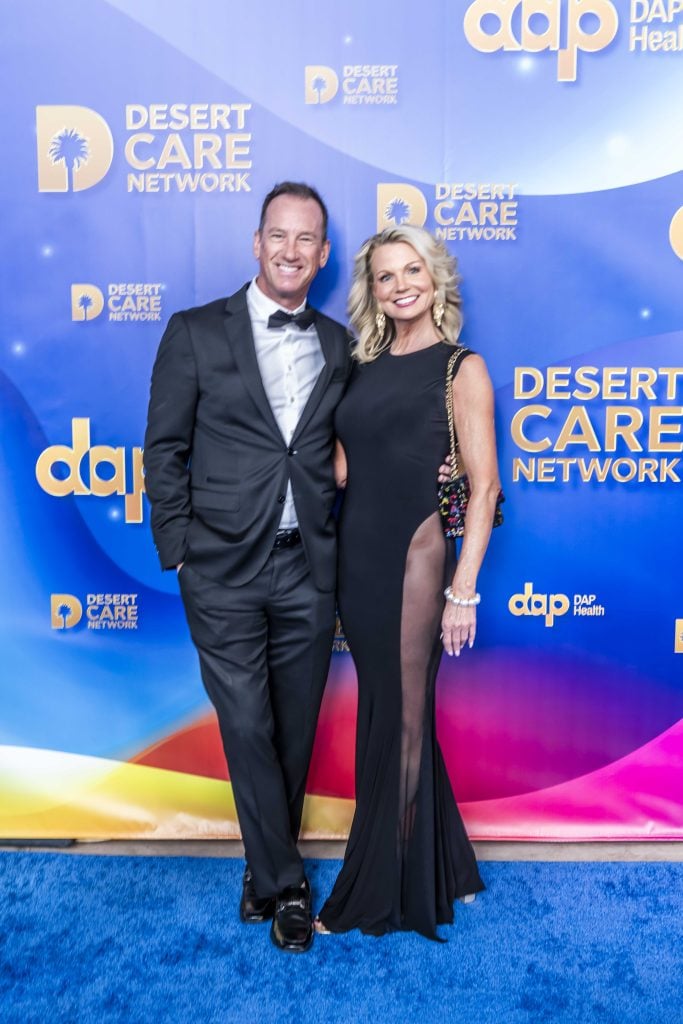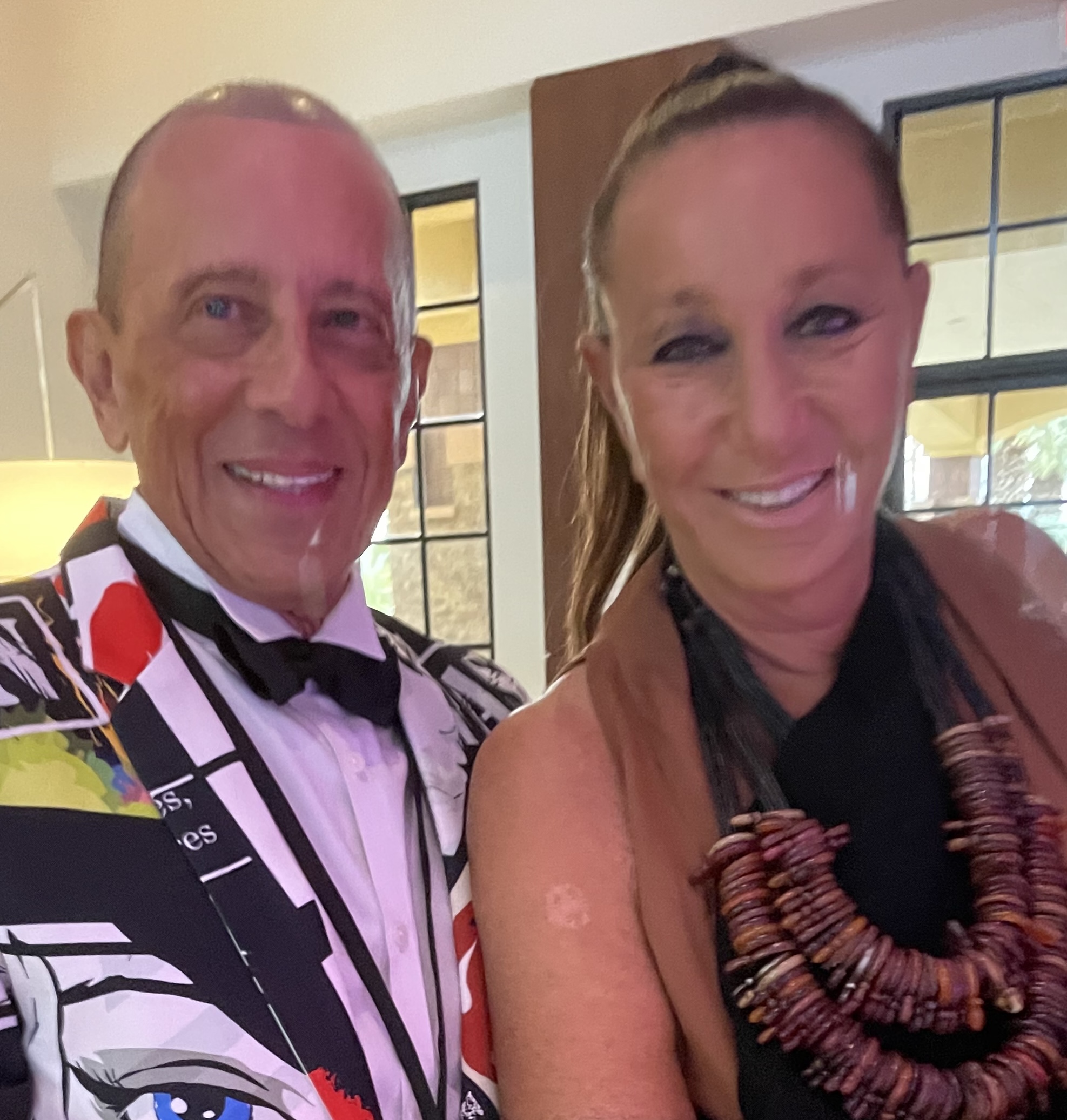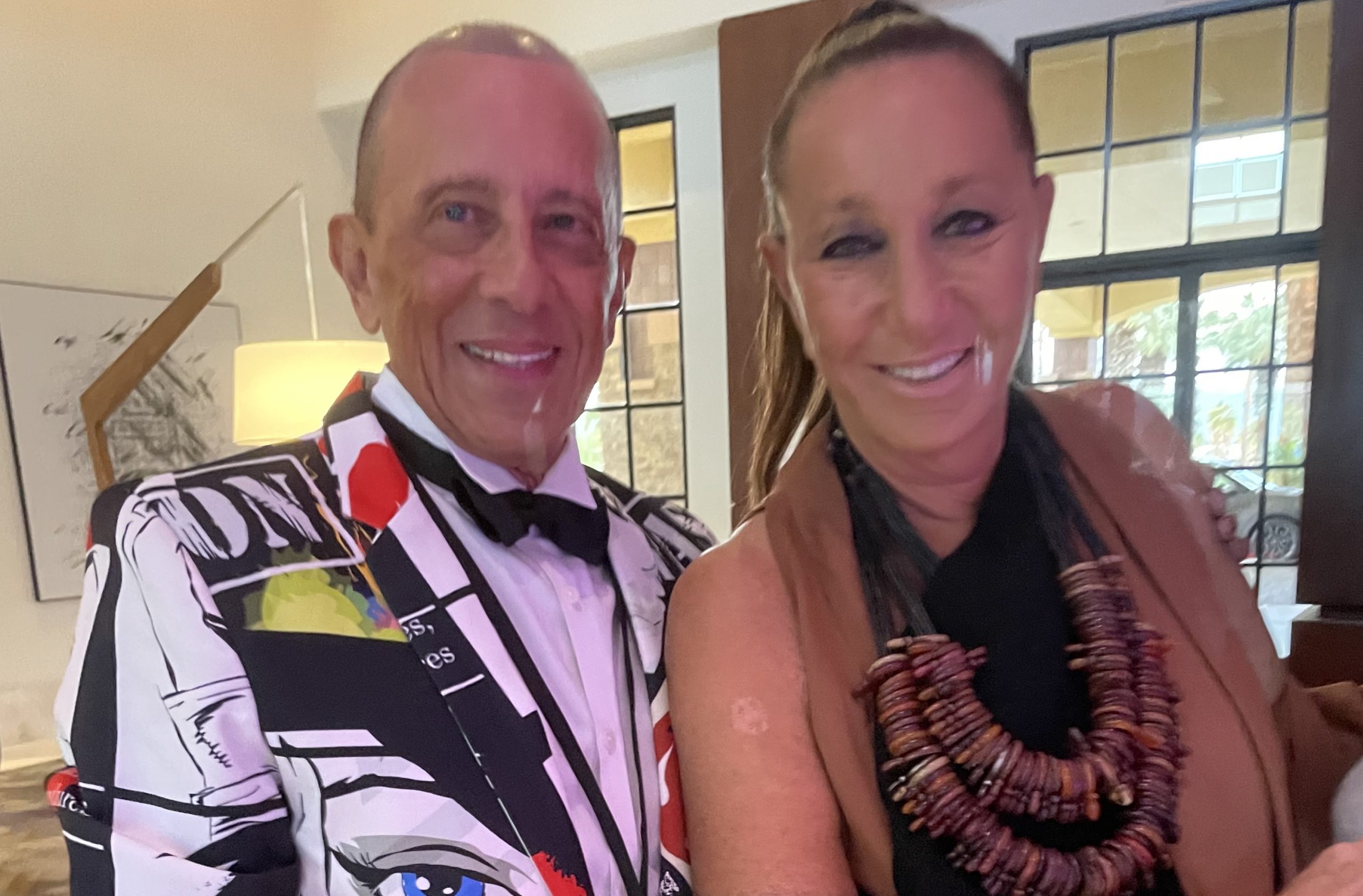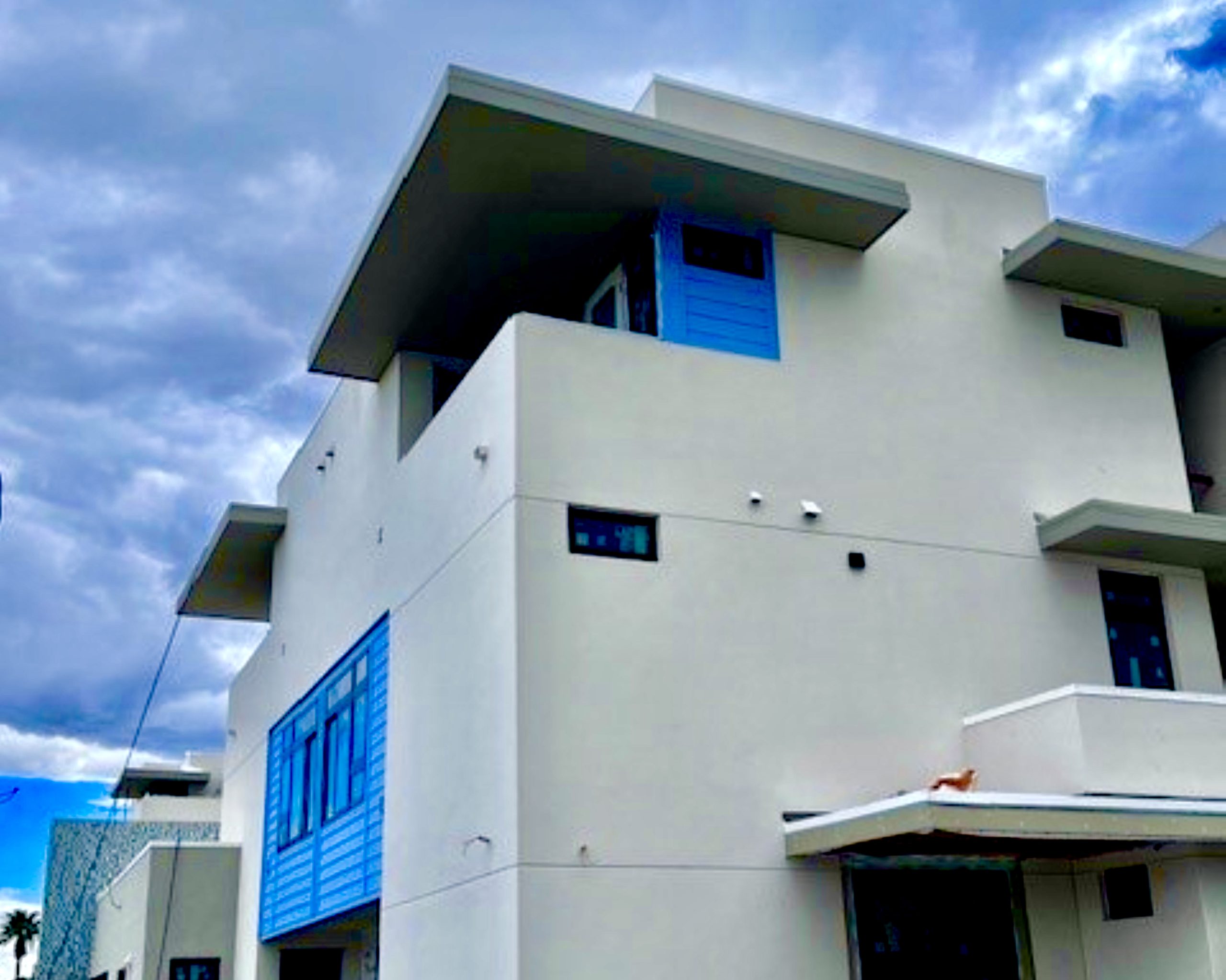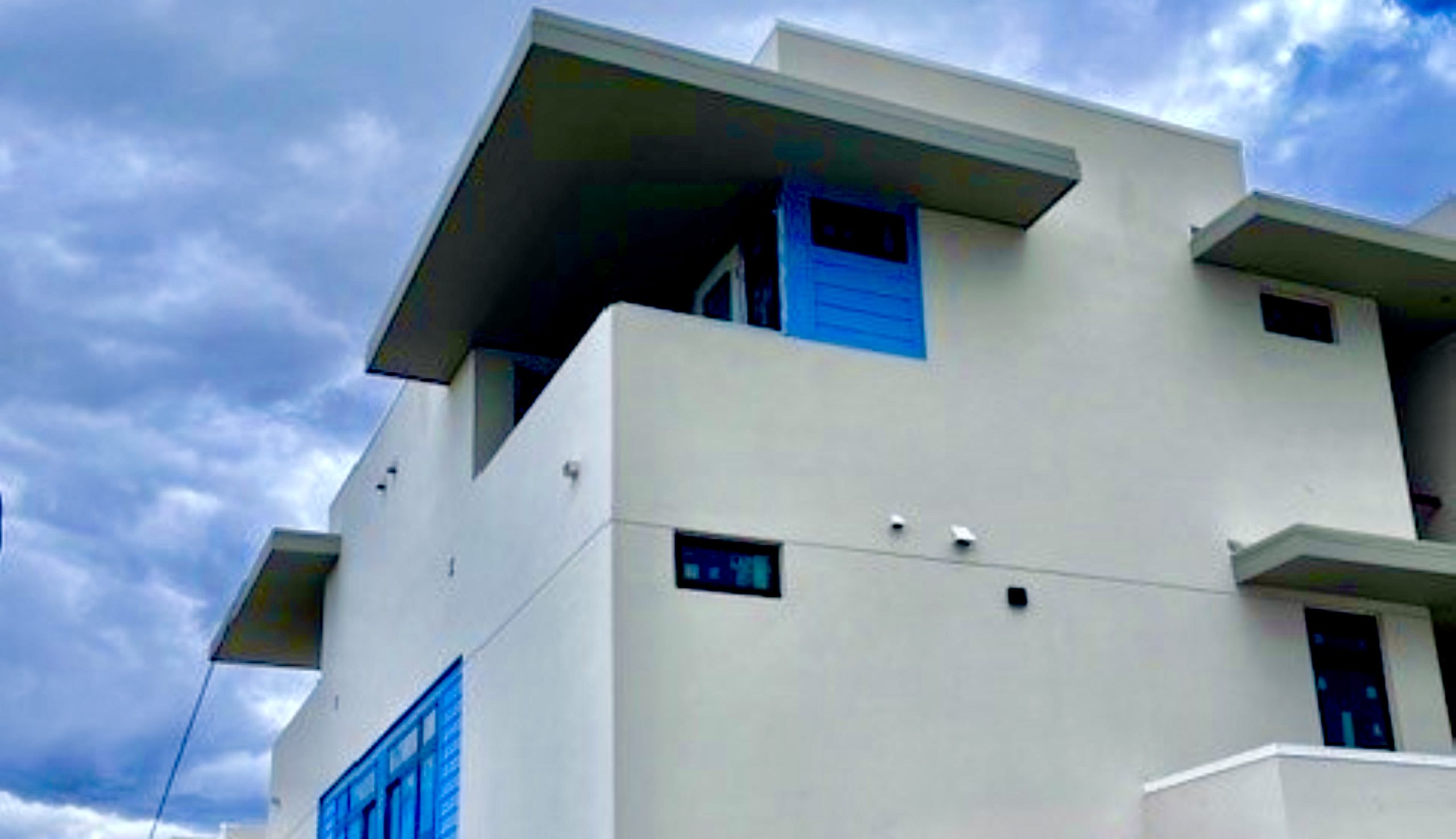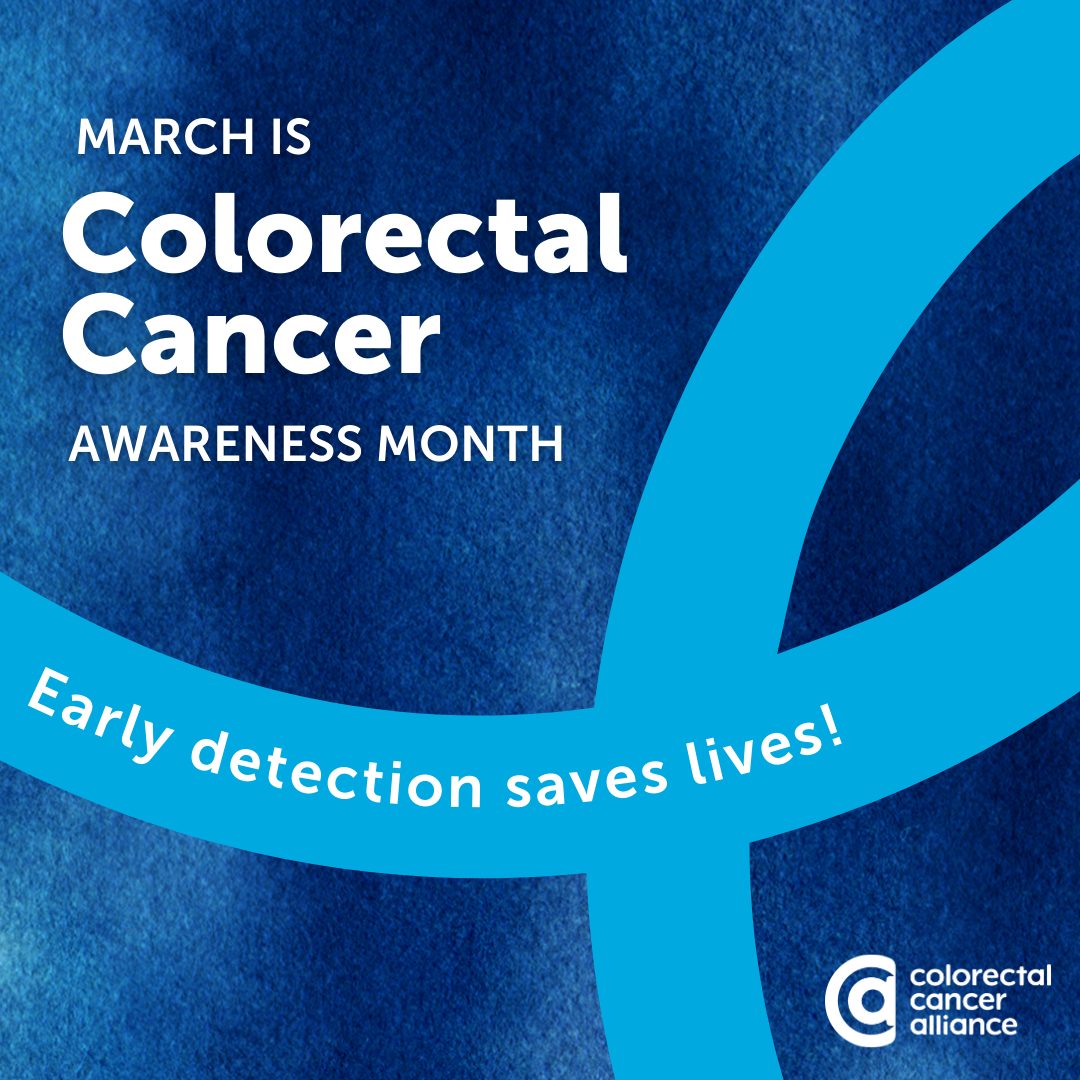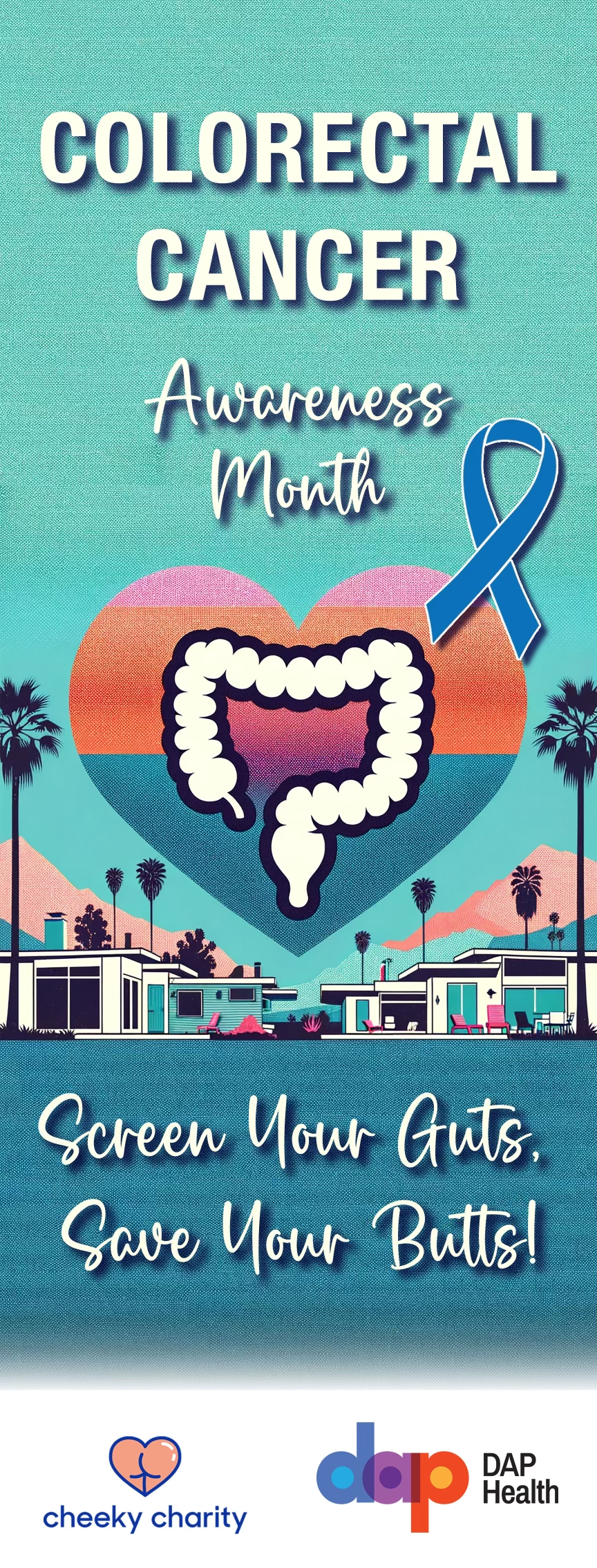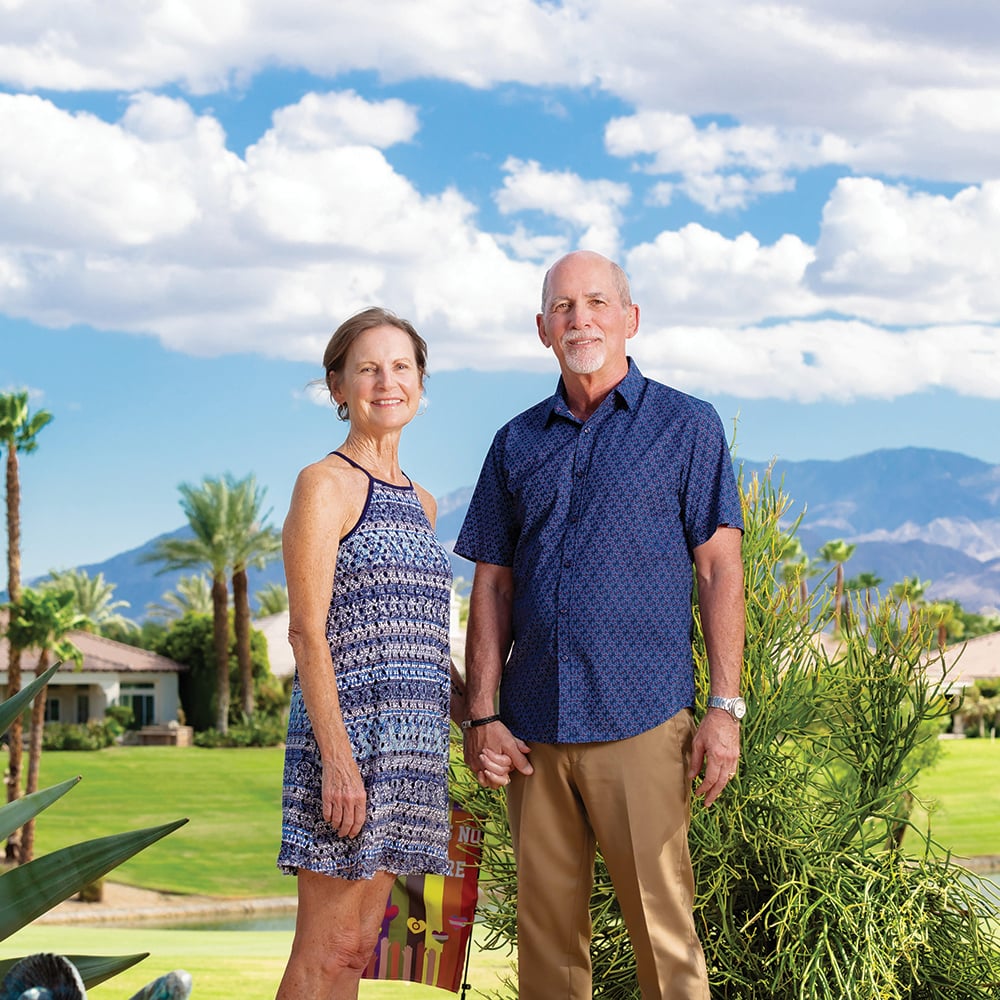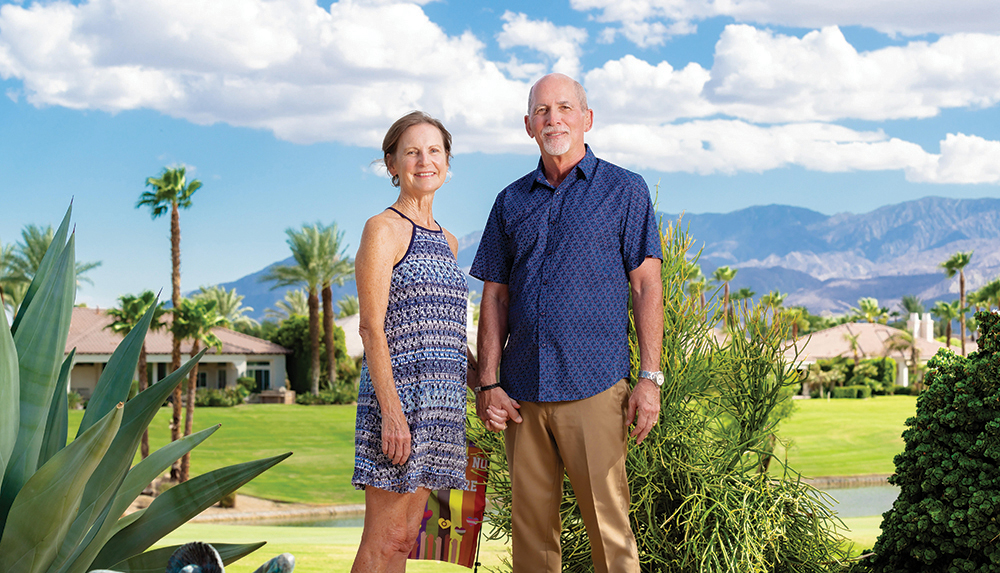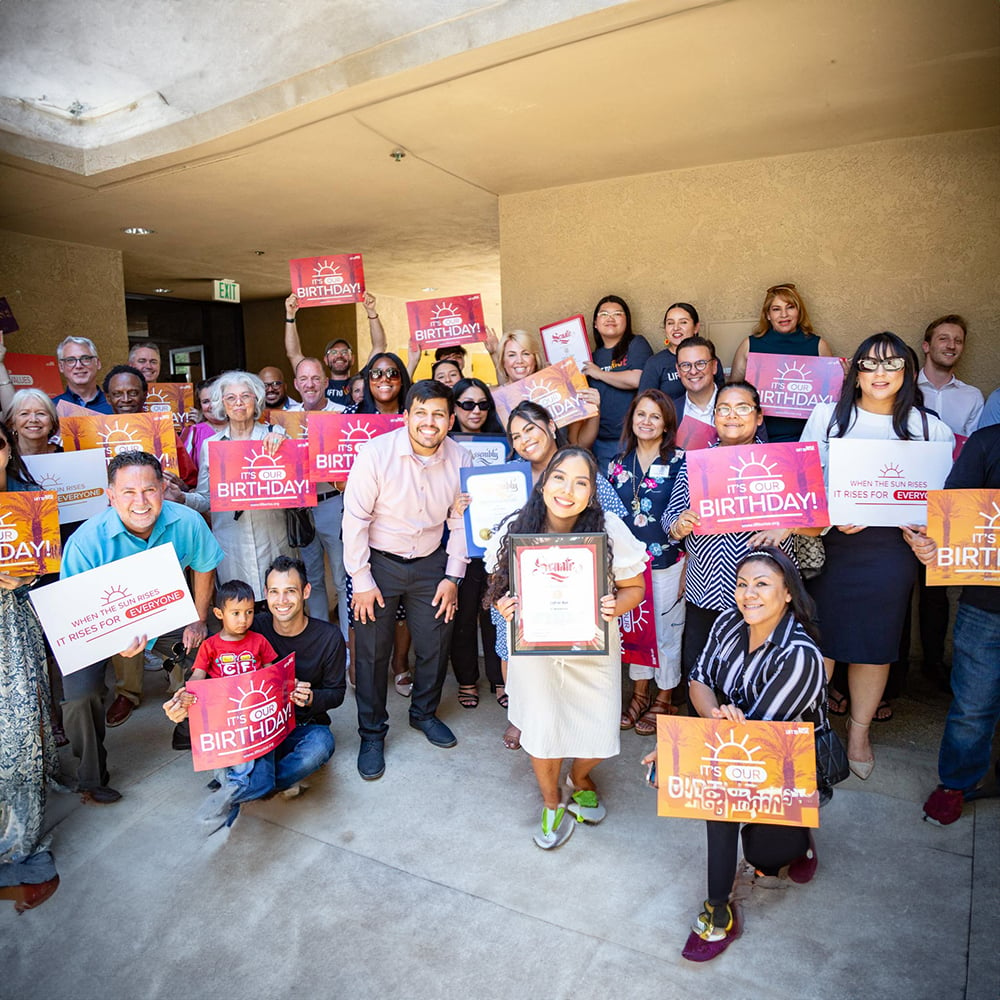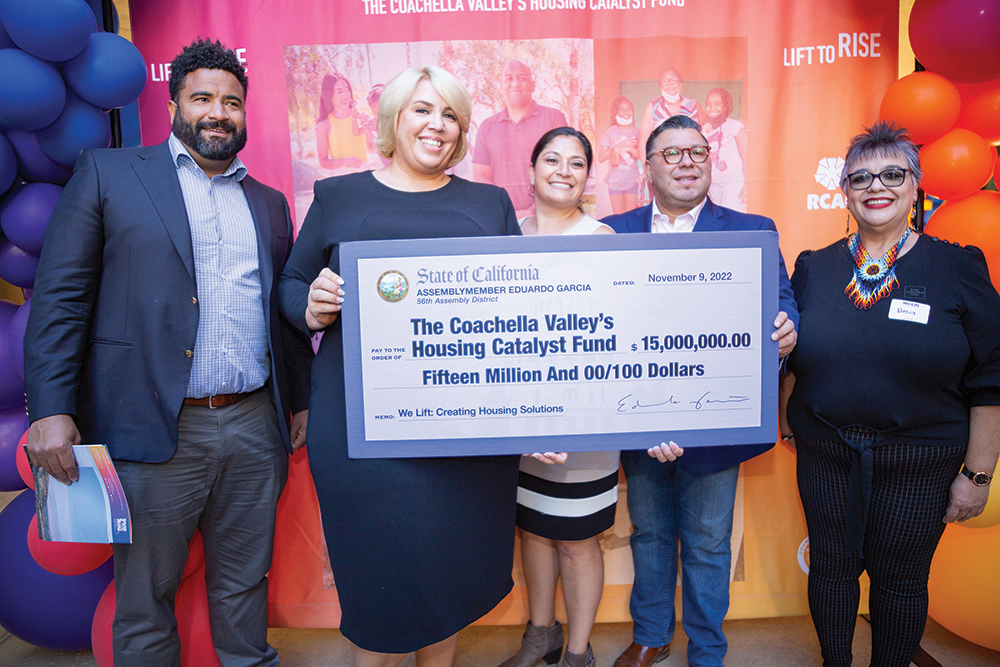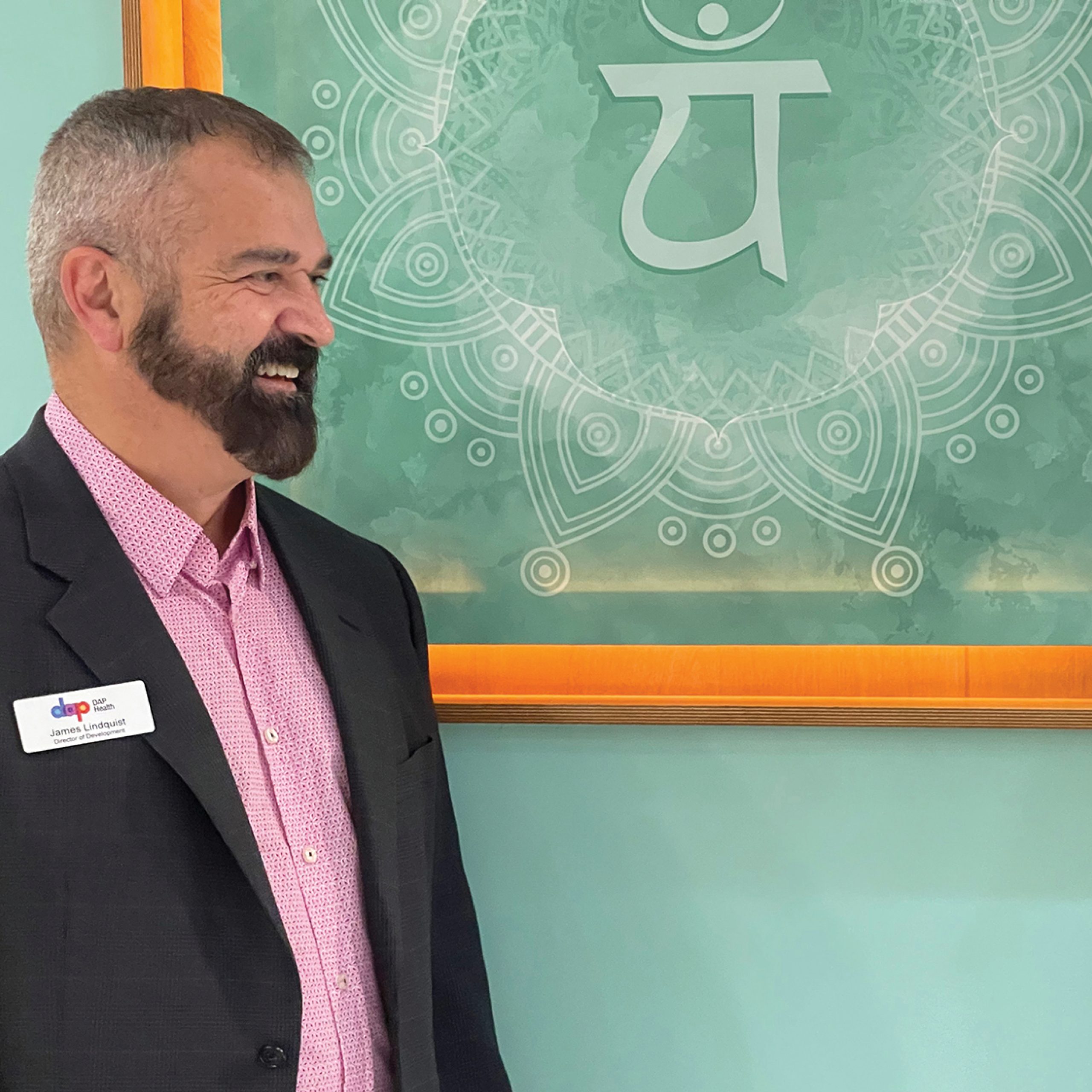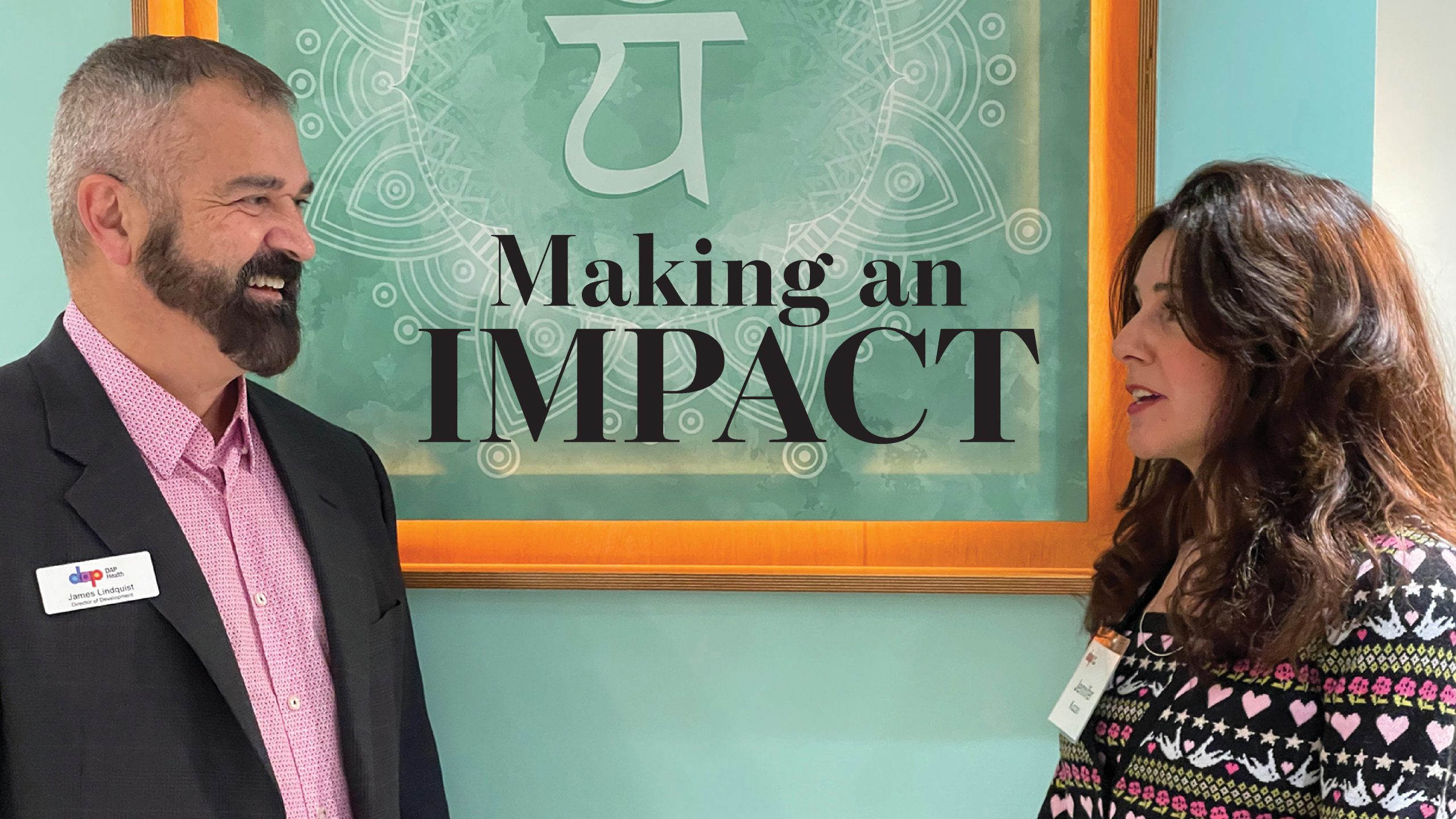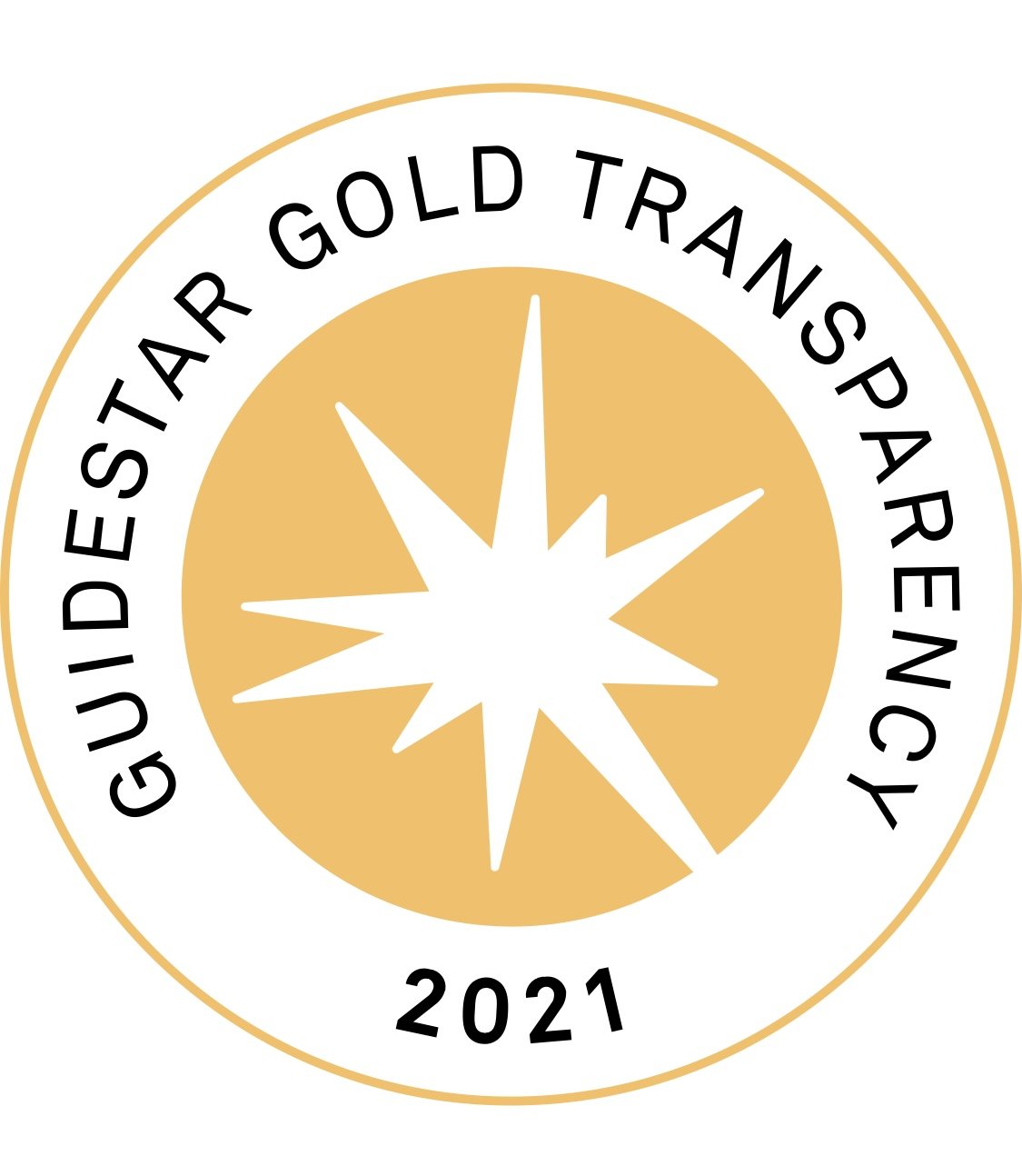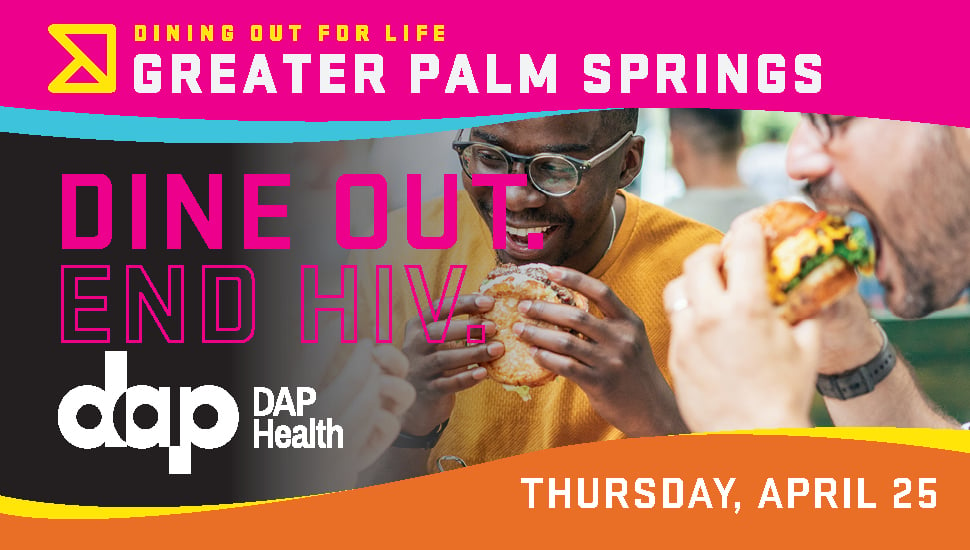
Annual Philanthropic Foodie Event Happens Thursday, April 25
DAP Health participates in the one-day North American gastronomic fundraiser for the 19th year.
Dining Out For Life® — the annual, North American foodie fundraising event that has collected more than nearly 100 million dollars for community-based organizations that serve people living with or impacted by HIV since its inception in 1991 — will take place in Palm Springs and across the Coachella Valley on Thursday, April 25, 2024.
Every year since 2005, Greater Palm Springs has participated in the all-day/all-night affair on behalf of DAP Health. And on each of those occasions, locals, snowbirds, and tourists have swelled with pride and come out in droves to raise much-needed funds while enjoying the generosity of participating local restaurants, bars, cafés, and bakeries that donate anywhere from 30 to 110% of their entire day’s and/or evening’s receipts — not just the profits — to the legendary effort.
Thanks to the generous support of participating restaurants, volunteers, and community members, Greater Palm Springs perennially places in the top three successful markets in the country. In 2023, 72 desert establishments participated to raise more than $270,000 — more than San Francisco, Los Angeles, New York City, Chicago, and other large urban centers.
With more than 12,000 local supporters expected to dine out for life at breakfast, lunch, happy hour, dinner, and/or late night this year, the 2024 goal is for Dining Out For Life Greater Palm Springs to grab the number one spot.
Eager participants are urged to visit daphealth.org/dofl, make reservations well in advance, and prepare to satisfy their hunger and thirst as many times as possible on April 25 to beat the North American record right here in our own back yard. If their favorite eatery hasn’t yet made its participation public, diners should speak up and urge the powers that be to sign up ASAP.
For the second year in a row, on the night before — from 4:00 to 8:00 p.m. — DAP Health will host a Bar Crawl on Arenas Road in Palm Springs that will serve as the official kickoff of DOFLGPS 2024. Drag performer Jackett Knightley, the event’s special ambassador, will “Pied Piper” patrons from bar to bar, where DAP Health volunteers will provide proof of participation by punching each revealer’s Bar Crawl bingo card.
DOFL National’s website states that each year “more than 50 local HIV service organizations partner with 2,400+ participating restaurants, 4,100+ volunteers, and 300,000+ diners to raise over $4.5 million for people living with HIV/AIDS in the United States and Canada. The best part? All funds raised through a city’s Dining Out For Life event stay in that city to provide help and hope to people living with or impacted by HIV/AIDS.”
“Because we were founded 40 years ago as a response to the AIDS crisis, Dining Out For Life has always been of supreme importance to DAP Health’s staff and patients,” says CEO David Brinkman. “Since our recent tremendous expansion has allowed us to increase our award-winning HIV/AIDS care from three to five of our 25 clinics, this annual event is more important to us than ever.”
To register as a Dining Out For Life in-restaurant volunteer ambassador on April 25 — or to sign on as a participating establishment, please contact Bruce Benning at [email protected] or 760.320.7854.
Participating Restaurants at Press Time
1501 Uptown Gastropub
Aspen Mills Bakery & Café
Barracks Bar
Bongo Johnny’s
Carousel Bakery
Chef Tanya’s Kitchen Palm Desert
Chef Tanya’s Kitchen Palm Springs
Chicken Ranch
Clandestino
Copley’s on Palm Canyon
Cork & Fork
Dickey’s Barbecue Pit
Eight4Nine Restaurant & Lounge
El Mirasol at Los Arboles
El Mirasol Cocina Mexicana
El Patio Palm Springs
Elmer’s
FARM
Gelato Granucci
Grand Central
Heirloom Craft Kitchen
Impala Bar & Grill Nightclub
Johannes
Johnny Costa’s Ristorante
Kaiser Grille
Le Donne Cucina Italiana
Lulu California Bistro
Palm Greens Café
Purple Room
Spencer’s Restaurant at the Mountain
Tac/Quila
The Front Porch
Toucan’s
Townie Bagels
Trio Restaurant
Willie’s Modern Fare
Zin American Bistro
Dining Out For Life Greater Palm Springs 2024 Sponsors at Press Time
Steve Tobin, Johnny Krupa, and The Grace Helen Spearman Charitable Foundation
Media Sponsors
Alpha Media
KESQ ABC News Channel 3
KGAY 106.5 & 92.1, GayDesertGuide.LGBT and 103.1 MeTVfm
NBC Palm Springs









